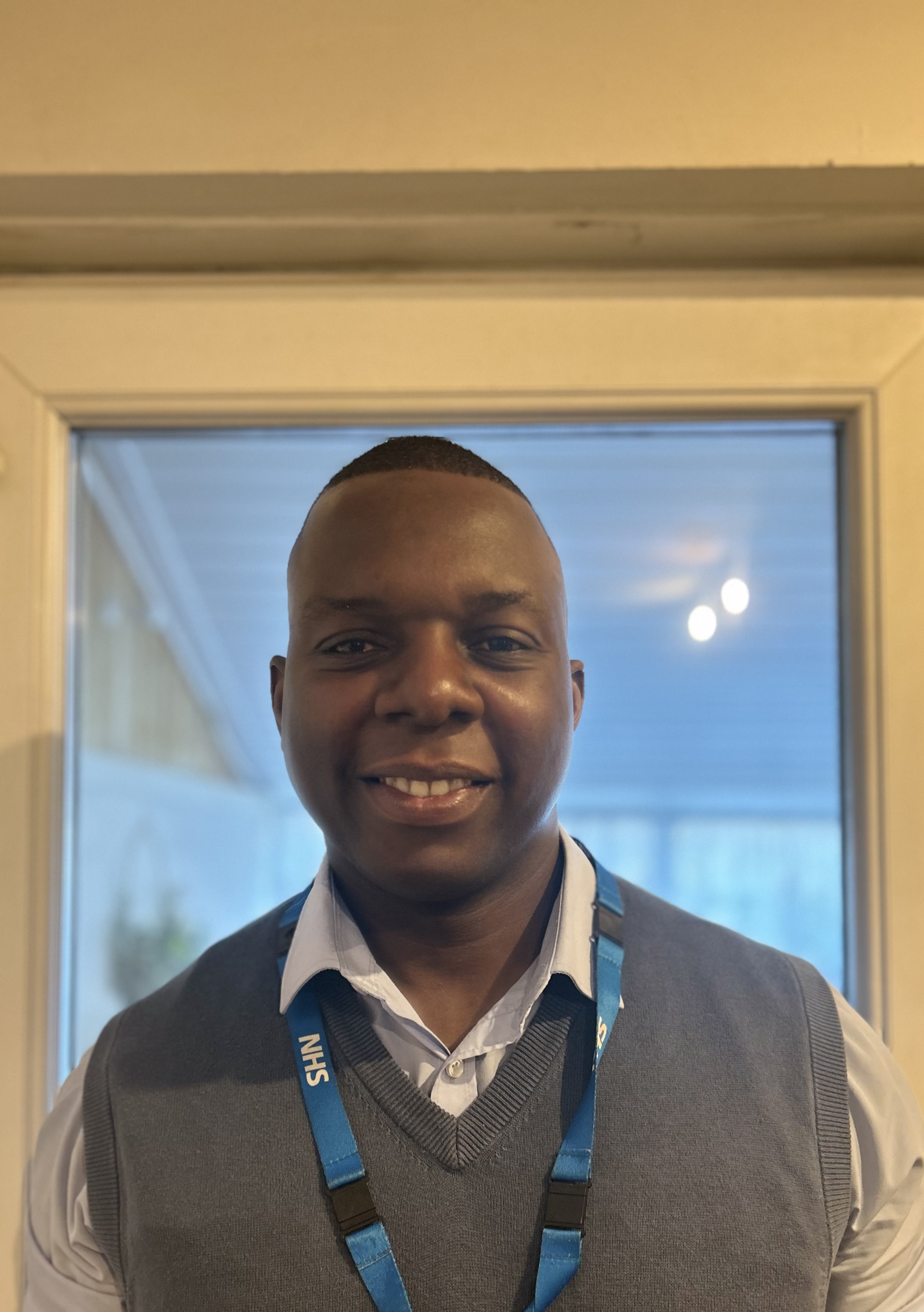Published on: 1 October 2024
As part of Black History Month (1 to 31 October), Derbyshire Healthcare NHS Foundation Trust is celebrating its diverse workforce by sharing colleagues’ stories and shining a spotlight on their lives. 
This year’s theme is ‘reclaiming narratives’ and reflects a wider shift towards recognising and correcting the narratives of Black history and culture. Joshua Ige, Divisional Lead Occupational Therapist at Derbyshire Healthcare NHS Foundation Trust, discusses what he does in his role, his background, and the importance of celebrating Black culture and history.
Here, Joshua highlights the significant contributions of Black people in the NHS and why we should celebrate these.
What is your job role?
I work as a Divisional Lead Occupational Therapist across several key services provided by Derbyshire Healthcare NHS Foundation Trust, including mental health services for young people, adults and older adults, and children’s public health services in Derby city. My role involves overseeing the quality and delivery of Occupational Therapy across these divisions.
Tell us something about your family and background.
I was born and raised in Nigeria, growing up in a family of four boys. My father, a professor of Geochemistry, and my mother, a nurse, have now retired. Their dedication to education and care greatly influenced my career path.
This year’s theme is about ‘Reclaiming Narratives.’ Why is Black History Month important to you?
This year’s theme resonates deeply with me, particularly in light of recent events around the country that could be seen as anti-immigration and anti-ethnic minorities. Black History Month is a vital platform to highlight the significant contributions of Black people to the NHS and the wider economy. On a personal level, it allows me to reflect on my journey from starting as a healthcare assistant in 2012 to becoming a Divisional Lead OT today. It’s an opportunity to celebrate resilience, and to reclaim the narrative about immigration by focusing on the positive impact immigrants have made.
How does your background shape the work you do for the NHS?
Growing up in Nigeria, I witnessed firsthand how a lack of finances could mean the difference between life and death. This has given me a profound appreciation for the NHS, which provides free healthcare to everyone in the UK. I am committed to contributing to the preservation and improvement of NHS services. My journey from healthcare assistant to a leadership role, along with my expertise in lived experience research and quality improvement, equips me with a unique perspective to enhance the quality of Occupational Therapy services.
What is your greatest achievement?
I have a passion for service improvement in Occupational Therapy and am proud of the projects I’ve led. My greatest achievement is supporting Occupational Therapy staff through several service improvement initiatives, with two of these projects already published and a third in its final stage. These publications were acknowledged during the Royal College of Occupational Therapists’ Elizabeth Casson Memorial Lecture as good examples of service improvement projects in Occupational Therapy. Publishing these innovations helps to immortalise the contributions of my team and me in advancing NHS services. Another personal milestone is completing my doctorate while working full-time and raising my children.
Who inspires you?
My father is my greatest inspiration. He was born into an illiterate, poor family and overcame numerous obstacles to better himself. His faith in God and strong work ethic allowed him to excel in his professional, academic, and social life. His journey continues to motivate me in both my personal and professional life.
What are you working on currently?
We recently concluded the Occupational Therapy staffing consultation for the Making Room for Dignity project, a programme to develop new acute mental health facilities in Derbyshire with single, en-suite rooms rather than dormitory accommodation. It was rewarding to see that our Occupational Therapy staff felt heard and satisfied with the outcomes regarding how we are structuring our staffing in the new healthcare facilities. Additionally, my third academic article, focusing on improving the efficiency and person-centeredness of Occupational Therapy input into care planning within mental health forensic and rehabilitation services, has been accepted by the British Medical Journal (Open Quality). I’m hopeful that the success of this project will contribute to enhancing service quality across the organisation.

